
Felix Dube
Senior Lecturer in the Department of Public Law, Faculty of Law, University of Pretoria, University of Pretoria
Dube Felix Dube is a Senior Lecturer in the Department of Public Law, Faculty of Law, University of Pretoria, where he teaches environmental law and administrative law. His research interests lie in administrative law, human rights and environmental law. He is also an assistant editor for the Journal of Law, Society and Development.
Less ![]()
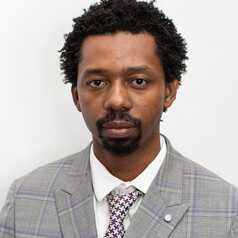
Felix Mambo
Country Economist - IGC, London School of Economics and Political Science
Félix Mambo is an economist at the International Growth Centre (IGC) in Mozambique. Before joining the IGC, he worked as a Research Consultant for UNICEF, supporting public finance initiatives for children and advising lawmakers on financial oversight. Between 2016 and 2018, he collaborated with UNU-WIDER as part of the Inclusive Growth program in Mozambique.
Ricardo Santos is a Research Fellow with UNU-WIDER at Mozambique..
He holds a PhD in Economics from the Institute of Development Studies (IDS) at the University of Sussex, a Master degree in Economics from the Nova University in Lisbon and an MA in Development Studies from IDS. His doctoral research examined the post-conflict labour market and education sector in Timor-Leste, looking at the medium-run impact of exposure to violence and conflict produce on the households ’choices regarding education, namely inquiring on impacts over the economic incentives for education. His previous work in the development field includes voluntary work for one year in Timor-Leste as a member of a Portuguese NGO and, Program Manager for Timor-Leste and Angola and Deputy Executive Officer of the same NGO. In his previous position, he was is Social Policy Specialist on Public Finance for Children with UNICEF Mozambique.
Less ![]()


Felix Schulz
Research Fellow, University of Leeds
Interdisciplinary researcher working on sociological and social-psychological perspectives around climate change. I am interested in institutional and individual level factors influencing climate change actions and perceptions. Of particular interest to my research are workers and labour unions in the social-ecological transformation and the role of value orientations.
Less ![]()


Femke Mulder
Postdoctoral Research Fellow, Anglia Ruskin University
Femke is a social scientist working in the field of disaster and humanitarian studies. She specialises in knowledge management for disaster mitigation, response and recovery – with a special focus on localised, participatory and inclusive approaches. She has a university teaching qualification (UTQ).
Femke has a background in organisation sciences and social anthropology. Her research focuses on knowledge management (KM) in disaster and humanitarian settings.
To date, she has studied disaster KM in the context of earthquakes, climate change, global health (esp. HIV/AIDS), conflict and displacement. She is trained and experienced in both qualitative and quantitative social research methods.
Femke has over 15 years of experience in programme management and policy research for government and global NGOs.
Spoken Languages
English
Dutch (native)
Spanish (professional working proficiency)
Research interests
Disaster management
Knowledge management
Sociology of disasters
Humanitarian studies
Organisation sciences
Social anthropology
Qualifications
PG Dip Social Research Methods, The Open University
MA Social Anthropology, SOAS University of London
BA International Development and History, SOAS University of London
Memberships, editorial boards
Advisory Board Member, DATAWAR project, Sciences Po Lille, France
Member, International Humanitarian Studies Association, International Institute of Social Sciences, the Netherlands
Guest editor, Emerging voices and pathways to inclusive disaster studies, Disaster Prevention and Management (2022) 31(1-2).
Less ![]()

Femke Nijsse
Lecturer at Global Systems Institute, University of Exeter
I'm a complexity scientist with experience modelling climate, energy systems and the economy.
I'm working on innovation in the energy system and the transition towards sustainable energy. I have been involved in the EEIST project led previously by Jean-Francois Mercure. The project seeks to inform energy policy in China, Brazil and India, as well as the UK and the EU. As part of this project, I've improved the representation of the power sector in the energy-economy-environment model E3ME-FTT. Major energy technologies in E3ME-FTT are represented with evolutionary economics, so that the diffusion of a new technology follows an S-curve. I've improved the power sector model by improving the representation of learning, getting higher-quality data and improve the representation of energy storage.
As a next step, I'm involved in developing a submodel of E3ME-FTT for flexibility, storage and hydrogen to gain a better understanding of the diffusion of high shares of variable renewables, and the way sector coupling can help. This should inform what type of policies are effective now that the major barriers towards diffusion are changing (supply chain / grid stability rather than costs)
I did my PhD within mathematics in the Exeter Climate Systems group with Peter Cox. It involved finding a theoretical basis for emergent constraints and improving (statistical) techniques. For some processes, a group of climate models shows a relationship between a past and future variable. Measurements of the first allows us to exploit this relationship and get a better estimate of our future climate. My focus was on decadal variability, historical warming and climate sensitivity.
Less ![]()

Fen-Biao Gao
Professor of Neurology, Gov. Paul Cellucci Chair in Neuroscience Research, UMass Chan Medical School
Dr. Gao is currently the Paul Cellucci Chair in Neuroscience Research and Professor of Neurology at the UMass Chan Medical school. He received his PhD degree from Duke University and did postdoctoral trainings at UCL and UCSF. He started his own lab at the Gladstone Institute of Neurological Disease at UCSF in 2000 and moved to UMass Chan in 2010. Dr. Gao received a Jacob Javits Neuroscience Investigator Award from the NINDS/NIH and a McKnight Neuroscience of Brain Disorders Award from the McKnight Foundation. He was also a Sloan Research Fellow in Neuroscience and a Klingenstein Fellow in Neuroscience.
Less ![]()
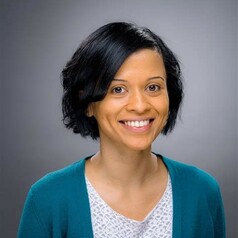
Fenella Amarasinghe
PhD Candidate, Faculty of Education, York University, Canada
I have worked in education for over 15 years, in the capacity of teaching, student services, leadership and research in K-12 and higher education. Currently I am a full-time PhD candidate in the Faculty of Education at York University. My research interests are in engineering ethics education, philosophy of technology and ethics as pedagogy. My PhD research is tied to a cross-institutional research project with researchers from the University of Manitoba, University of Waterloo, Memorial University and York University. We are investigating technological stewardship and pedagogy within and beyond the Technological Stewardship Practice Program which was launched by the Engineering Change Lab and MaRS Discovery District. Additionally, I teach a first year engineering ethics, creative problem solving and communications course at the Lassonde School of Engineering at York University, and I sit on the Joint APPRC-ASCP Task Force on the Future of Pedagogy at York University. Prior to beginning my PhD, I was a Senior Manager, Education Planning and Development at Toronto Metropolitan University where I led culture change related to advancing pedagogy and ethics in engineering education.
Less ![]()

Feng Wang
Professor of Sociology, University of California, Irvine
Feng Wang in an expert on Chinese demographics and professor of sociology at University of California, Irvine. His research interests: include comparative demographic, economic, and social processes; social inequality in state socialisms and contemporary Chinese society.
Less ![]()

Fengshi Wu
Associate Professor in Political Science and International Relations, UNSW Sydney
Fengshi Wu is an Associate Professor in Political Science and International Relations at the School of Social Sciences, University of New South Wales (UNSW), Sydney, Australia. She is a world leading scholar in environmental politics, state-society relations, and global governance with the empirical focus on the Asia Pacific region (esp. East Asia, Southeast Asia, and Central Asia). Her recent research and teaching interests highlights the global transformation of the energy system rapidly accelerated by the challenges and geo-politics of climate change.A graduate of the University of Maryland (PhD in political science) and Beijing University (BA Hons International Relations), she has been a Visiting Professor at the Harvard-Yenching Institute (2008-2009) and the Sciences Po, Paris (Nov. 2024).
Less ![]()

Ferdinando Fioretto
Assistant Professor of Computer Science, University of Virginia
I am an assistant professor of Computer Science at UVA. I lead the Responsible AI for Science and Engineering (RAISE) group where we make advances in artificial intelligence with focus on two key themes:
AI for Science and Engineering: We develop the foundations to blend deep learning and constrained optimization for complex scientific and engineering problems.
Trustworthy & Responsible AI: We analyze the equity of AI systems in support of decision-making and learning tasks, focusing especially on privacy and fairness.
My group is generously supported by the National Science Foundation, Google, Amazon, and the University of Virginia. Before joining the University of Virginia, I was an assistant professor at Syracuse University. Prior to that I was a postdoctoral research associate at the Georgia Institute of Technology and a research fellow at the University of Michigan.
Less ![]()
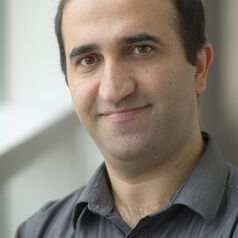
Fereidoun Rezanezhad
Research Associate Professor, Department of Earth & Environmental Sciences, University of Waterloo
Dr. Fereidoun Rezanezhad is a Research Associate Professor in the Department of Earth and Environmental Sciences at University of Waterloo. He received his PhD in 2007 from the University of Heidelberg, Germany, in soil and environmental physics. His research broadly focuses on soil-water-atmosphere interactions and the effects of climate change and management practices on carbon and nutrient biogeochemistry in natural and disturbed ecosystems. Rezanezhad has extensive field experience in terrestrial and wetland ecosystems, specifically with soil and water quality, and nutrient and greenhouse gas flux monitoring. His current research targets cold regions Critical Zone science with a particular focus on hydro(bio)geochemical soil processes in cold-temperate to subarctic and permafrost regions.
Less ![]()


Fergus O'Leary Simpson
Postdoctoral research fellow, University of Antwerp
Fergus O'Leary Simpson is a postdoctoral researcher at the University of Antwerp’s Institute of Development Policy (IOB). His research looks at the intersection of environmental conservation, various forms of extraction and violent conflict in eastern DRC’s South Kivu Province. He obtained a PhD from the International Institute of Social Studies (ISS) in the Hague, which is part of Erasmus University.
Less ![]()

Fern R. Hauck
Professor of Family Medicine and Public Health Sciences, University of Virginia
Fern R. Hauck, MD, MS is currently the Spencer P. Bass, MD, Twenty-First Century Professor of Family Medicine and Professor of Public Health Sciences at the University of Virginia School of Medicine. She is also the director of the International Family Medicine Clinic at UVA.
Dr. Hauck's primary research focuses on sudden unexpected infant death, including sudden infant death syndrome (SIDS). She has studied risk factors for SIDS and other unexpected infant deaths, especially focusing on African-American and other minority communities. She has also studied bedsharing practices cross culturally and preventive strategies, such as pacifier use. An important theme of Dr. Hauck's research is eliminating disparities in health services and outcomes. She is a member of the American Academy of Pediatrics Task Force on SIDS and is an advisor to several other organizations and federal agencies that focus on infant health and safety.
Her other professional passion is global health and caring for refugees. She started the International Family Medicine Clinic in 2002, which serves the refugee population of Charlottesville.
Less ![]()

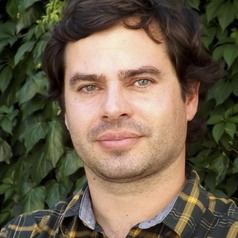
Fernando Camacho Padilla
Profesor contratado doctor, Universidad Autónoma de Madrid
Fernando Camacho Padilla. Doctor en Historia por la Universidad Autónoma de Madrid (UAM) y la Pontificia Universidad Católica de Chile en convenio de cotutela. Actualmente es profesor del Departamento de Historia Contemporánea de la UAM. Ha realizado estancias de investigación en la Universidad Nova de Lisboa, la Universidad de Santiago de Chile, y en la Universidad de Teherán, entre otras. Ha sido invitado a impartir cursos y talleres académicos en centros como la Universidad Allameh Tabataba’i de Teherán, la Universidad del Punjab (Lahore, Pakistán), y la Universidad de Azerbaiyán de Lenguas Extranjeras. Antes de su incorporación a la UAM fue profesor en las universidades de Estocolmo, Uppsala, Södertörn y Dalarna (Suecia).
Sus principales publicaciones tratan sobre las relaciones entre Chile y Suecia, así como las Comisiones de la Verdad en el Cono Sur. En los últimos años, sus investigaciones se han centrado en las relaciones contemporáneas de América Latina con el mundo islámico, especialmente durante el periodo de la Guerra Fría.
Less ![]()
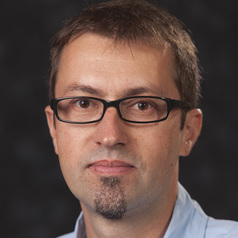
Fernando Lara
Associate Professor of Architecture, University of Texas at Austin
Fernando Luiz Lara is a Brazilian architect with degrees from the Federal University of Minas Gerais (BArch, 1993) and the University of Michigan (PhD, 2001). Prof. Lara's interests revolve around Latin American 20th century architecture with emphasis on the dissemination of its values beyond the traditional disciplinary boundaries. His PhD dissertation on this topic was expanded into a book: The Rise of Popular Modernist Architecture in Brazil, published in 2008 by the University Press of Florida. In his several articles Prof. Lara has discussed the modern and the contemporary Brazilian architecture, its meaning, context and social-economic insertion. His latest publications look at the modernist vocabulary and spatiality being appropriated by the humblest favela dwellers.
A member of the Brazilian Institute of Architects and the Brazilian DOCOMOMO, Lara has also been active in his native country as a critic, researcher and educator. A licensed architect in Brazil, Lara has designed many structures, alone or in partnership with others. His current interest in the favelas has turned into opportunities to engage with public policy at the municipal level as well as collaborations with local firms designing public spaces in informal settlements. In 2005 he founded Studio Toró, a non-profit devoted to the challenges of water conservation and urban flooding in Latin America.
At the University of Texas at Austin Fernando Lara teaches seminars on 20th century Latin American architecture and urbanism, as well as studios related to the continent's current urban challenges.
Less ![]()

Fernando Abreu Oliveira
Mestre em Biociências e técnico de laboratório em Química, Universidade Federal do Oeste do Pará (UFOPA)
Less ![]()

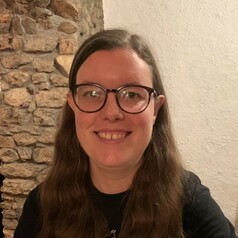
Ffion Reynolds
Honorary Research Fellow, Cardiff University
I am an archaeologist specialising in the prehistory of Britain and Ireland. I trained as an archaeologist at Cardiff University, completing my PhD at the university, focusing on the rock art of the Neolithic passage tombs of Newgrange, Knowth and Dowth in Co. Meath, Ireland, and then broadening my research interests to include the subject of worldview; studying shamanism, totemism and animism.
As part of my PhD in 2008, my research took me to South America, where I worked closely with the Shipibo tribe, the indigenous people along the Ucayali River in the Amazon rainforest in Peru. My rock art research took me to Namibia in 2017, when I worked with the archaeology department at the University of Namibia, Windhoek.
I joined Cadw in 2011, the historic environment service for the Welsh Government, to work as a community archaeologist in the south Wales area. Currently, I oversee the public programmes for Cadw, across 130 sites in Wales.
I co-direct a public archaeology project in the multi-period landscape around the important site of Bryn Celli Ddu Neolithic passage tomb, on the island of Anglesey.
Less ![]()
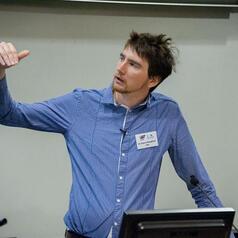
Fiacre Rougieux
Senior Lecturer, Photovoltaic and Renewable Energy Engineering, UNSW Sydney
Fiacre Rougieux has a PhD from the Australian National University in the field of photovoltaics and semiconductor materials. Between 2012 and 2018, he was an ARENA Post-doctoral Fellowand subsequently an ARC DECRA fellow at the ANU where he developed high-efficiency and low-cost solar cell concepts including efficiency records and successfully developed a wide range of processes to remove defects in solar cells and improve their efficiency.
Fiacre is currently a Senior Lecturer at UNSW. He has published and co-authored more than 100 papers. His research interests include advanced solar cell processes, system design and solar cell, module and system degradation.
Less ![]()
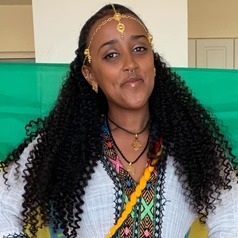
Fikir Getaneh Haile
PhD candidate, Department of Political Studies, Queen's University, Ontario
Fikir is a Joseph-Armand Bombardier CGS Doctoral Scholar in the Department of Political Studies at Queen’s University. With a focus on Ethiopia, her doctoral research utilizes a critical international political economy lens to examine the politics of urban expansion and land access in states with deep ethnic divisions.
Less ![]()

Filipa Melo Lopes
Lecturer in Social and Political Philosophy, The University of Edinburgh
I am a Lecturer in Social and Political Philosophy at the University of Edinburgh.
My areas of research are feminist philosophy, social theory, sexual ethics, and the work of Simone de Beauvoir.
I grew up in Portugal, studied in Norway, received my B.A. from Simon Fraser University, in Canada, and received my Ph.D. from the University of Michigan.
Less ![]()
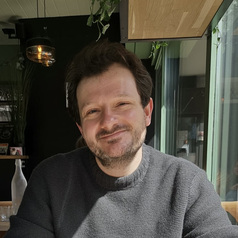
Filippo Cervelli
Lecturer in Modern and Contemporary Japanese Literature, SOAS, University of London
Filippo Cervelli received his PhD in Oriental Studies from the University of Oxford, and is currently Lecturer in Modern and Contemporary Japanese Literature at SOAS University of London. Broadly speaking, his research focuses on representations of individual and social crises across modern and contemporary Japanese literature and popular culture. He has written on the fiction of Takahashi Gen’ichirō, Abe Kazushige, on post-Fukushima literature, on manga, and on animation. He recently co-edited the interdisciplinary special issue The Lonely Nerd (2022), on representations of nerds and loneliness, for the journal Exchanges. He is currently exploring narrations of space and peripheral realities in modern Japanese literature; on the popular culture side, he is focusing on the works of Hosoda Mamoru.
Less ![]()

Filomena Nunes
Professor of Physics, Michigan State University
My interest in physics started in middle school. I had questions about everything and initially thought I would be an engineer. I did my undergraduate in Engineering in Lisbon but realized theory was my real passion. I moved to England for a PhD in Theoretical Physics. In research, I started out with halo nuclei and modeling their properties. That lead to the theory for nuclear reactions of unstable nuclei and the connections to astrophysics. That lead to uncertainty quantification, Bayesian statistics, experimental design...
Less ![]()

Fiona Allison
Research Fellow, Jumbunna Institute of Indigenous Education and Research, University of Technology Sydney
Fiona is currently employed as a Research Fellow at Jumbunna Institute for Indigenous Education and Research and at James Cook University, as well as undertaking consultancies for government and non-government organisations.
As Research Fellow at Jumbunna, Fiona is Senior Researcher for a First Nations Access to Justice project aimed at improving First Nations civil/family law access to justice. This project seeks to better understand how First Nations peoples define access to justice (as processes and outcomes) in the areas of tenancy, consumer/credit and debt, social security, child protection and discrimination.
Fiona has explored access to justice in other recent projects. She has completed an evaluation of an initiative for NT Legal Aid which employs social workers alongside lawyers to meet psychosocial needs of those caught up in the justice or child protection systems. She has also recently completed a 2-year evaluation of an Aboriginal and Torres Strait Islander Health Justice Partnership based in Cairns and a report on First Nations civil and criminal law access to justice issues in the Barkly region of the NT.
Fiona was lead investigator on the NT and QLD pilots of justice reinvestment (JR). JR is a framework that uses community development approaches to reduce incarceration, with some focus in Australia on Indigenous incarceration (and strengthening Indigenous self-determination as a response to this incarceration). She is currently working as JR data and research consultant with Just Reinvest NSW in Moree and Mt Druitt. Fiona current chairs Justice Reinvestment Network Australia, a network bringing together communities implementing JR and their supporters, as well as academic and government advocates of JR.
Fiona has worked from early 2011 at JCU. She was a Senior Researcher within the Justice and Social Inclusion Unit at the Cairns Institute, JCU for the Indigenous Legal Needs Project (ILNP). The ILNP, an Australian Research Council Linkage Project, was the first comprehensive exploration of the civil and family law needs of Aboriginal and Torres Strait Islander people nationally. Fiona also taught human rights and related subjects to staff of Papua New Guinea’s Department of Justice at JCU. Since 2017 Fiona has been working on place-based collective impact project focused on improving outcomes for children (0-12) in the southern corridor of Cairns. This project has been funded by Mission Australia.
Prior to working at JCU, Fiona taught legal studies at Tranby Aboriginal College in Sydney and worked at the Australian Human Rights Commission as a conciliator of race and human rights complaints. She has also worked at Community Legal Centres in the NT and NSW as a generalist solicitor and a family violence and Aboriginal outreach solicitor.
Less ![]()

Fiona Berry
Research Principal, Institute for Sustainable Futures, University of Technology Sydney
Research Principal at the Institute for Sustainable Futures at University of Technology Sydney. Passionate about local food systems, community engagement and interdisciplinary research.
Less ![]()
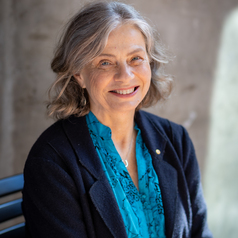
Fiona Blyth
Professor, University of Sydney
Fiona Blyth is a Professor at the Sydney School of Public Health, Faculty of Medicine and Health, University of Sydney.
Less ![]()


Fiona Brookman
Professor of Criminology, University of South Wales
Fiona Brookman is Professor of Criminology at the University of South Wales, UK. She received her PhD from Cardiff University in 2000. She conducts research mainly in the areas of policing, violence and homicide. She is also interested in narrative and visual criminology. She has extensive experience of conducting in-depth interviews with violent offenders as well as with detectives and forensic scientists. She has undertaken ethnographic research of homicide investigation in the UK and US, which has included spending hundreds of hours shadowing homicide detectives, and following cases from crime scene to court.
Fiona has over 80 publications including those in international journals and numerous chapters in edited collections, including The Oxford Handbook of Offender Decision Making (Oxford: 2017), In Their Own Words (Oxford: 2013) and Narrative Criminology (New York: 2015). She is lead editor of the Handbook of Homicide (Wiley: 2017) and author of Understanding Homicide (Sage: 2022) (2nd edition).
Fiona is Director of the Criminal Investigation Research Network (https://criminology.research.southwales.ac.uk/cirn/). CIRN aims to advance knowledge on the theory and practice of major crime investigation. The network brings together leading academics from around the world with expertise in major crime investigation and senior investigating officers and practitioners at the forefront of developing practice and strategy. Fiona is a member of a Home Office Expert Advisory Panel on Serious Violence Policy and Editorial Board Member of the American Journal of Criminal Justice.
Less ![]()

Fiona Burgemeister
Research Officer, La Trobe Rural Health School, La Trobe University
My PhD examined the implementation and evaluation of place-based initiatives for disadvantaged children and their families. I work part-time for the La Trobe Rural Health School as a Research Officer. I also conduct research in the area of gender-based violence. I have more than 25 years experience as a senior health administrator with expertise in strategy, policy, governance and operations.
Less ![]()
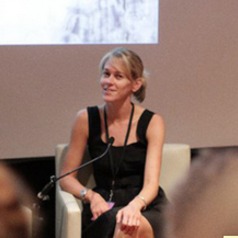
Fiona Crawford
Adjunct Lecturer at the Centre for Justice, Queensland University of Technology
Fiona Crawford is an Adjunct Lecturer at the Centre for Justice at the Queensland University of Technology.
She is the co-author Never Say Die: The Hundred-Year Overnight Success of Australian Women’s Football and the author of The Matilda Effect.
Less ![]()
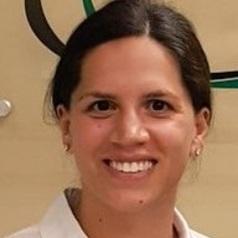
Fiona Doukas
PhD candidate, University of Sydney
Fiona is a hospital pharmacist with over 12 years of clinical experience. She has worked in the field of infectious diseases and antimicrobial stewardship since 2013.
After completing a Bachelor of Pharmacy, and a Master of Public Health specialising in Infectious Diseases Epidemiology & Control, Fiona is now a PhD candidate at the University of Sydney. Her PhD thesis is on interventions that improve antimicrobial use, under the supervision of Professor Andrew McLachlan AM.
Fiona is currently on secondment at the Australian Commission on Safety and Quality in Health Care revising the Antimicrobial Stewardship Clinical Care Standard. Her permanent position is as the Senior Pharmacist (Antimicrobial Stewardship) at Concord Repatriation General Hospital in Sydney.
Less ![]()
- Market Data





















